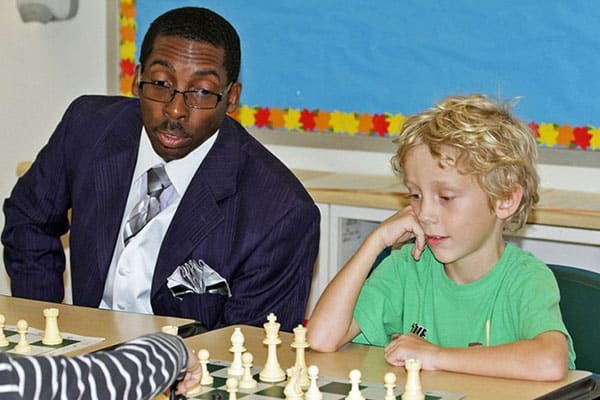Children from all backgrounds can succeed at chess and learn thinking skills which are applicable to other disciplines.
According to the Center on the Developing Child at Harvard University, “Executive function and self-regulation skills are the mental processes that enable us to plan, focus attention, remember instructions, and juggle multiple tasks successfully. …The brain needs this skill set to filter distractions, prioritize tasks, set and achieve goals, and control impulses.” At the NSCF, we believe teaching chess provides both conceptual instruction and practical application that allow students to develop these skills that are so necessary for success in life.

Over many decades, researchers have studied how learning chess can positively impact education. From improvement in reading and math scores to critical and creative thinking assessments, as well as helping with special needs, chess has been proven as an effective pedagogical tool for students of all ages and abilities.
While there are scholarly papers being published every year, there are two we find particularly useful. In 1995, for a conference convened at the Borough of Manhattan Community Colleges (BMCC), Dr. Robert Ferguson compiled this summary of studies that reviewed work going back to the early 1970s: Chess in Education Research Summary. More recently, in 2014 our friends at St. Louis Chess Club and Scholastic Center funded a Literature Review of Chess Studies.
The National Scholastic Chess Foundation is a 501(c)(3) non-profit educational organization. Donations are tax-deductible. Relevant IRS information is available on request.